15+ Freeware Alternatives to Premium Plugins
We truly live in the golden age of audio plug-ins. What used to only be achievable via expensive hardware or third-party software processing is now often available inexpensively, or even as freeware.
You can now recreate the workflows of classic analog consoles, get the sound and color of priceless vintage gear, and manipulate the audio in practically any way imaginable—limited only by your imagination.
You don’t necessarily need to spend too much of your precious budget buying plug-ins anymore either, as options in the world of freeware plugins have become increasingly stellar and with the right touch, can also give your productions a professional sound.
With so many options out there, I wanted to make a comprehensive list of some of the beset freebie signal processors around, and what paid software they provide an excellent alternative to. I’ve separated the selections by the type of processing, and have tried to be pretty objective.
There are of course a lot of great plug-ins that are worth investing in, and sometimes have a significant edge in sound quality or ease of use that freeware will never be able to beat. But when money is tight or you’re just looking to try something new without a pricetag standing in the way of you and your experiments, you’ll find there is a great selection of freeware to help you out.
Just about all of these plugins will work on VST platforms like Logic, Cubase, Ableton and many more, and some will work as AAX or RTAS plugins in Pro Tools as well. All entries should work on PCs and some will be good for Mac users as well. For a master list of some of the best free AAX Pro Tools plugins around—all of which are Mac-friendly—try The (Updated) Big List of Free Pro Tools Plugins.
One of the downsides to free plugins is that they may cease being supported at any time. For a few of the plugins here, you’ll find links to reputable sites where you can find them for free, rather than a link to the original maker’s website, which may be defunct in some cases. I haven’t had major issues with any of these plugins, but always do your own due diligence before downloading free software, and try them out at your own risk.
So, whether you’re working with a limited budget, prefer the sound, or want to test drive a type of processor with unlimited recall before upgrading to a paid version, here are some fantastic freeware alternatives to popular paid plug-ins.
EQs
Free Alternative to Pultec Plugins like the EQP-1A:
Ignite Amps PTEq-X
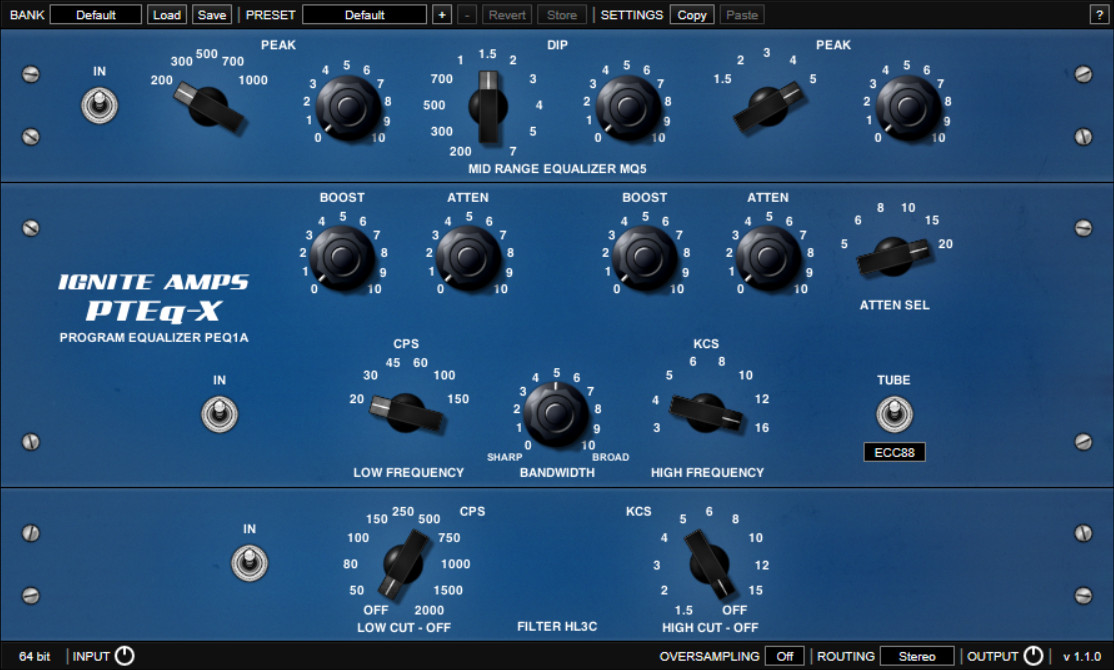
The freeware PTEq-X aims to capture the sound of the original Pultec hardware but with extra EQ points.
Pultec equalizers are perhaps one of the most misunderstood types of EQ. But those who learn to use them usually come to love them.
Although they are so beloved by engineers in the know, the original hardware can be hard to find, and incredibly expensive. Their popularity in the studio has come back around in recent years as a number of companies from Apogee to UAD to Waves to Softube to IK multimedia have created their own software versions.
One great free option is the PTEq-X from Ignite Amps, which offers three different variations of the Pultec design, it includes some additional EQ points and tube emulations for additional flexibility over the originals. It works in VST, VST3 and AU formats for Mac and Windows.
Free Alternative to Dynamic EQ Plugins like the Soundradix SurferEQ:
Tokyo Dawn Records NOVA
Dynamic EQs are becoming more and more popular, and can really take a mix over the top when used in tandem with traditional, static equalization.
This type of EQ works by analyzing the intensity for each frequency in the incoming signal to determine how much EQ to apply, responding dynamically based on source material. For instance, you can cut a given frequency, but only when it becomes to overbearing, or apply a boost, but only when the target sound starts to disappear.
The iZotope Alloy and Ozone plugin suites feature dynamic EQ, and Soundradix’ SurferEQ is probably one of the more popular standalone plugins in the dynamic EQ genre. There are a number of controls here beyond the standard EQ parameters, allowing you to adjust how the lookahead analyzer in the plug-in responds to the incoming signal.
For those that might want to look into adding a dynamic EQ to their library but don’t want to dish out cash for one just yet, the NOVA plugin by Tokyo Dawn records is a great start. It’s billed as a “parallel dynamic EQ”, and is a very detailed plug-in that features more conventional multi-band compression operation in addition to dynamic EQ.
The free version is quite powerful and can be used indefinitely. It works on Mac and Windows and is available in AAX and AU formats. There is also a paid version available that offers an even more robust feature set.
Free Alternative SSL EQ Plugins like the Waves SSL G-Channel EQ:
Variety of Sound BootEQ
BootEQ is Variety of Sound’s take on the SSL G-Channel equalizer. It has four parametric bands, and unlike the Waves’ premium version, a drive control for adding in saturation to taste.
SSL’s processors have a reputation for being pretty clean as far as analog consoles go, so it’s a nice option to be able to add in some extra harmonics and saturation with the BootEQ.
It features an optional tube circuit model, as well as vintage and modern modes, and can also be used as a preamp simulator, to emulate the feel of plugging direct into a real board. Download it here.
Free Alternative to FabFilter ProQ-3:
Equilibre from AudioTeknikk
FabFilter makes some amazing plugins, and perhaps their most beloved offering is the ProQ equalizer. Everything about the ProQ is clean: the sonics, the GUI, the user experience. You can get extremely surgical, or as broad as needed with its fully-parametric topology, and it’s great for all phases (no pun intended) of the production process.
Really the only downside is that it is so clean, that the addition of a setting to make it sound more “analog” when needed would make me use it even more often.
The freeware EQ Equilibre doesn’t offer unlimited bands, but its eight EQ bands provide more than enough coverage of the frequency spectrum.
Each one can be used in a L/R, mid, or side configuration making it useful for mastering just as much as mixing. There is also a very handy saturation slider, sending the effect from totally clean into lovely analog-style distortion.
The one drawback to this design is that the saturation slider doubles also adjusts the output gain, which can be a little bit of a nuisance when you want to increase drive without increasing volume. But for exactly $0, it’s a remarkable little plugin that can do an incredible amount of heavy lifting.
Unfortunately, the website for AudioTeknikk plugins appears to now be defunct. Apparently, it can be hard to keep the lights on when you are charging absolutely nothing for your wares. But links can still be found on other forums and websites, and the latest version may still work with your system.
Dynamics
Free Alternative to Premium SSL Bus Compressor Plugins:
FXPansion DCAM Freecomp
There are quite a number of SSL-style bus compressor emulations on the market today, which is unsurprising as these have become a go-to bus compressor for decades for everyone from cream-of-the-crop audio professionals to modest hobbyists.
The DCAM Freecomp is one of the better SSL compressor emulations out there, and it’s also completely free! It offers the same control set and the same tight, clean, and transparent compression of the official SSL emulations, even coming with the same kind of visual aesthetic.
One major limitation? Being designed as a bus compressor, DCAM’s version is meant to be used on stereo tracks and doesn’t work on mono channels.
Free Alternative to LA-2A plugins like Universal Audio’s Teletronix LA-2A:
Antress Modern Lost Angel
The LA2A stands alongside the 1176 as one of the most iconic compressors of all time, and Universal Audio’s version is a faithful digital recreation offering three generations of the classic optical design. It offers the same response and aesthetic as the hardware, and is possibly the best emulation of this style of compressor ever made.
Unfortunately, you only have access to it if you’ve bought in to UA’s family of hardware, which is needed to run their acclaimed plugins.
If you’re looking for a free alternative, but you’re not a fan of needing speciality hardware to run specific software, check out the Lost Angel from Antress’ “modern series”, a great optical compression alternative.
With the Lost Angel, you have simple control over Peak and Gain, the amount of compression and output level. It’s got the same kind of subtle squish as the UAD version that just sounds so smooth on guitars and vocals, or stacked in series as a complement to other compressors. The Lost Angel is a bit older however, and only comes in 32-bit VST format.

The Lost Angel provides the vibe and compression characteristics of the LA-2A at a price point that makes it hard not to give it a try.
Another good free option here is the Sonic Anomaly SLAX. It ’s got the familiar two knob design, controlling the amount of compression and the output gain. It also has a blend control so that you can ride the line between compression and limiting, as well as an emphasis knob that works as an EQ over the high end. The SLAX has some color to it, getting you smooth optical compression with some additional tubey, vintage flavor.
Unfortunately freeware makers don’t always stick around forever. The Sonic Anomaly website appears to be down since at least October 2019, but their plugins can still be found archived on a variety of forums and free plugin sites.
Free Alternative to the Waves DBX 160:
SmackLabs 63x
The DBX160 is a first choice compressor for VCA-style compression, and it’s widely renowned for being absolutely great on low end sources like drums and bass guitar.
Although it’s perhaps not one of the sexiest compressors around, it is one of the most useful, and considered something of a “secret weapon” by many ace producers and engineers.
SmackLabs’ digital recreation is similarly super-simple to operate, with controls over threshold, ratio, attack/release, and output gain. You can also switch between hard and soft knee settings.
Free Alternative to 1176 Plugins like the Native Instruments VC-76:
Antress Modern Seventh Sign
The 1176 is probably the most popular compressor of all time, but believe it or not there aren’t many freeware plug-ins that really model the topology of an 1176 very closely. (Possibly because Bomb Factory covered that very early on with the creation of the free BF-76 plugin early on in the DAW era.)
The Seventh Sign is about as 1:1 as you can get for an 1176 emulation, including the backwards (compared to other compressors) design of the attack and release knobs. The only thing it’s missing is the ability to “nuke” the signal, going “all buttons in” on the ratio controls. But you still get the fast response that made you insert an 1176-style compressor in the first place.
Free Alternative to Fairchild Plugins like the Slate FG-MU:
Vladgsound Molot
Fairchild compressors achieved their mythos in no small part to the Fab Four’s use of them on the stereo bus of their recordings, along with so many other of the biggest hits of pop music’s golden era.
Real Fairchilds run on an insane number of vacuum tubes, and offer a significant dose of character. They are thick, chewy, and when used appropriately, can absolutely take the fatness of a track to the next level. They are a fantastic style of compressor for the digital audio era, as they easily correct some of the overly clean, sterile sounds of today by injecting some serious analog vibe.
Slate has one of the better Fairchild emulations around with their FG-MU compressor, but they’re not the only one at the game.
Possibly the best freeware contemporary here is the Vladgsound Molot. Beware: Fairchild style compressors can be notoriously finicky and difficult to dial in at first, and the Molot is no different. But it offers some additional controls, but the GUI is customizable to an extent. This is a solid vari-mu compressor with an even more robust control set (including optional saturation) than most other Fairchild plug-ins have.
Free Alternative to Limiters like the Waves L1:
George Yohng W1 Limiter
The W1 is a freeware plugin that aims to recreate the sound of Waves’ game changing L1 limiter, and it does it quite well. There are controls for Threshold, Release, and Ceiling, and unlike the original does not have an option to apply dither.
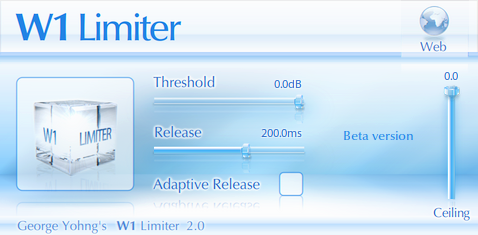
The W1 is a recreation of the Waves L1. Why design a limiter without a gain reduction meter? Well, beggars can’t be choosers.
The biggest drawback is that there is no visualization of attenuation—which is kind of critical in a limiter. If you’re not afraid of setting your limiting by ear, it’s not a bad free tool to have.
Once again the now defunct Sonic Anomaly has a good option here with the Unlimited maximizer, a limiter with a bit more modern feel and significantly more flexibility.
Channel Strips
Free Alternative to SSL Channel Strips:
SmackLabs Logic Channel
Logic Channel is inspired by the classic SSL channel strips, and it sports the same kind of 4-band EQ, compressor, and gate.
It also has controls for input and output gain so that you won’t need to do any additional gain staging to integrate it into your insert chain.
If you’re looking for an all-in-one channel strip plug-in that offers the tight and clean sonics that SSL is known for, this one might be your new go-to.
Free Alternative to Waves’ Abbey Road REDD Consoles:
Shattered Glass Audio Code Red
Waves recreated the enigmatic REDD console of Abbey Road Studios, a staple of major 60s British recordings and famously used by The Beatles, among others.
Shattered Glass Audio’s plug-in lineup may be quite modest compared to Waves’, but they have some great freeware available. One such example is the Code Red, which recreates some of the same color and character of the Waves version, but in a free format.
It aims to accurately emulate the original REDD console preamp circuit, EQ curves, as well as the “bold and punchy character, and the warmth of the classic 60s all tube British console”.
According to Shattered Glass, the “easily recognized overdriven sound of the Beatles’ ‘Revolution’ was created by playing a P90 based guitar through two chained preamps from this console.” This is the kind of sound they are looking to deliver on.
The Code Red also includes IR cab emulation, parallel processing options, and an M/S processing mode.
Saturation
Free Alternative to Premium Tape Saturation Plugins:
Variety of Sound Ferric TDS
There are countless paid plugins out there that do great emulation of classic tape machines. But there’s at least one freeware plugin that gets some rave reviews.
Although it’s not quite as versatile as some multi-purpose saturators like the Soundtoys Decapitator, or as specific as some of the tape emulators from UAD, Slate, or Waves, the Ferric TDS from Variety of Sound does a good job of offering some of the subtle compression and added harmonics provided by analog tape.
It features a number of controls over the amount of compression and saturation and you can drive the input just like a real tape machine, which affects how the other controls respond. It can even do some gentle limiting, making it great on everything from the stereo buss down to individual tracks. Download it here.
Pitch
Free Alternative to Antares Autotune:
Melda MAuto Pitch
Love it or hate it, Autotune has made a name for itself across a number of musical styles. And this much is certain: It ain’t going anywhere.
Unfortunately it has become known and sometimes reviled for the penchant some have to heinously overuse it, but it is actually a very useful processor that is good for a number of sources.
You can use it to do a lot more than just tune vocals—from changing the pitch of drums to fixing out of tune guitars, to addubg harmonizer effects, create faux harmony and background vocals, among other things.
MAuto Pitch sports the same controls over Speed, Detuning, and Depth. It has a Width setting that can spread out your track in the stereo field and a Formant setting to tailor the effect even more to a male or female voice. It also has a visual screen to help fine-tune, no pun intended. It’s also a bit easier to use than Antares’ beloved (and scorned) pitch shifter.
Time-Based Effects
An Alternative to the Bricasti M7 Reverb?
Variety of Sound Epicverb
OK, can a free plug-in sound as good as a unit that costs thousands of dollars? No, probably not. Make no mistake, there is no substitute for the sound of the spaces that you can get with a Bricasti.
But with that said, for a freeware reverb, Epicverb is a bit of a no-brainer. It has a surprisingly fantastic sound—especially for a plugin that costs $0.
It comes with presets that bring you quality sound of a number of different spaces, while offering many critical onboard controls like EQ and modulation, so that you can manipulate the sound in any way you want in one plug-in. At this price, why not try it?
Free Alternative to Flexible Vintage-Style Delays like the Soundtoys Echoboy:
E-Phonic Retro Delay
Delay might be one of the easier types of effects to replicate digitally, if you’re after a simple clean sound. But Soundtoys has pretty much cornered the market for delay that has some real “vibe” with the wildly successful Echoboy plugin—a digital delay that offers loads of versatility and vintage tone.
Retro Delay shoots for the same kind of vintage character combined with modern options that has made Echoboy a first choice for so many engineers. There are controls over left and right delay channels, as well as distortion, modulation, and reverb. One big ommission is that there’s no tap tempo function here, but there are a number of other (sometimes retro) ways to fine tune the timing of a delay to match your tracks.
Summing it Up
The quality of freeware has come a long way, and it’s now totally possible to build a library of great plug-ins completely from the free options that are available.
A lot of the plug-ins on this list may not be 1:1 emulations of their costly counterparts, but many times they offer additional or unique features.
There are many paid plug-ins that are so outstandingly useful that a free plugin is unlikely to ever steal its thunder.
But with a price tag of $0, why not give some of these freebies are worth a shot? Good freeware can sometimes be so incredibly useful you’ll wonder why they’re just giving this stuff away.
Brandon Stoner is a guitar player and audio engineer who writes about music technology.
Please note: When you buy products through links on this page, we may earn an affiliate commission.







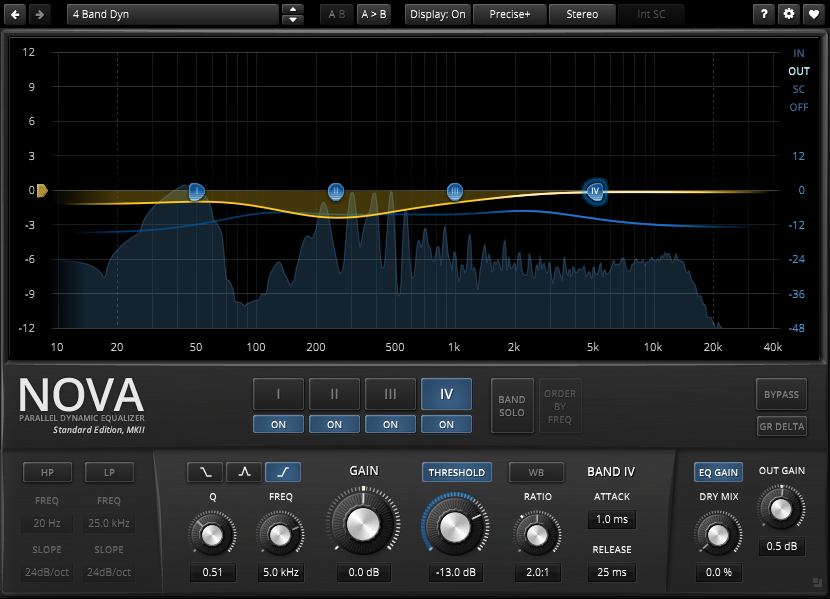

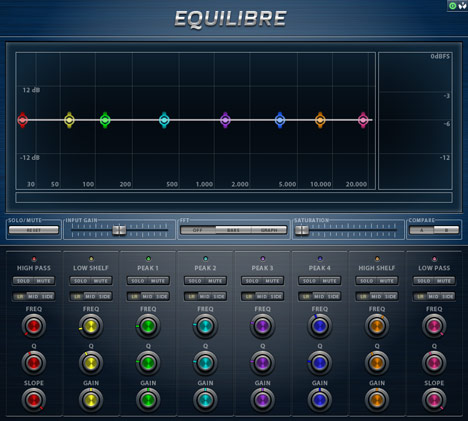
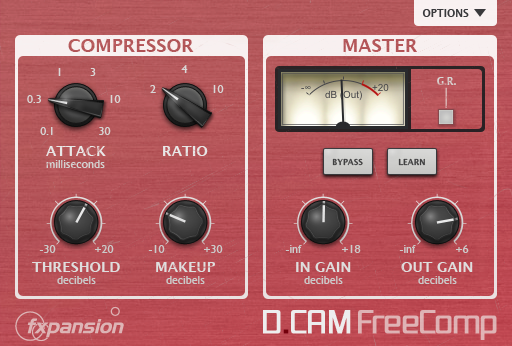


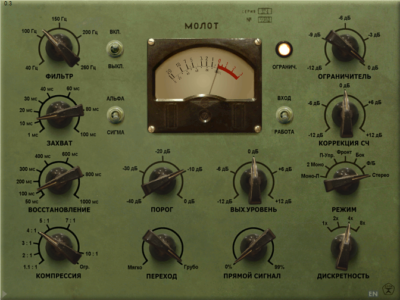
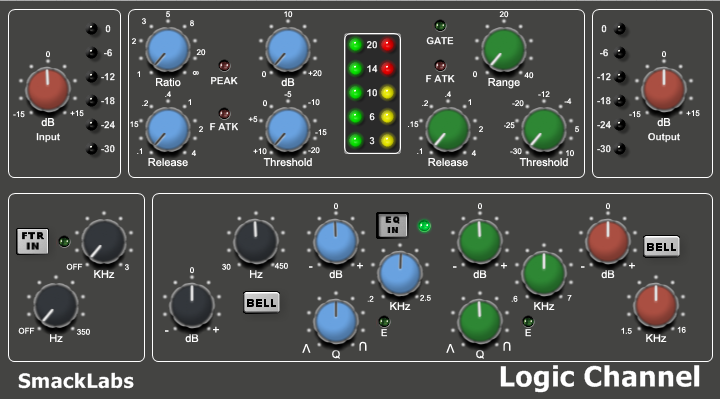
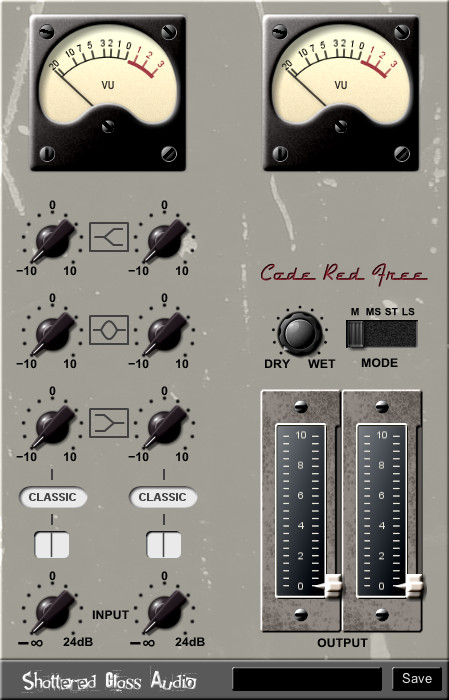

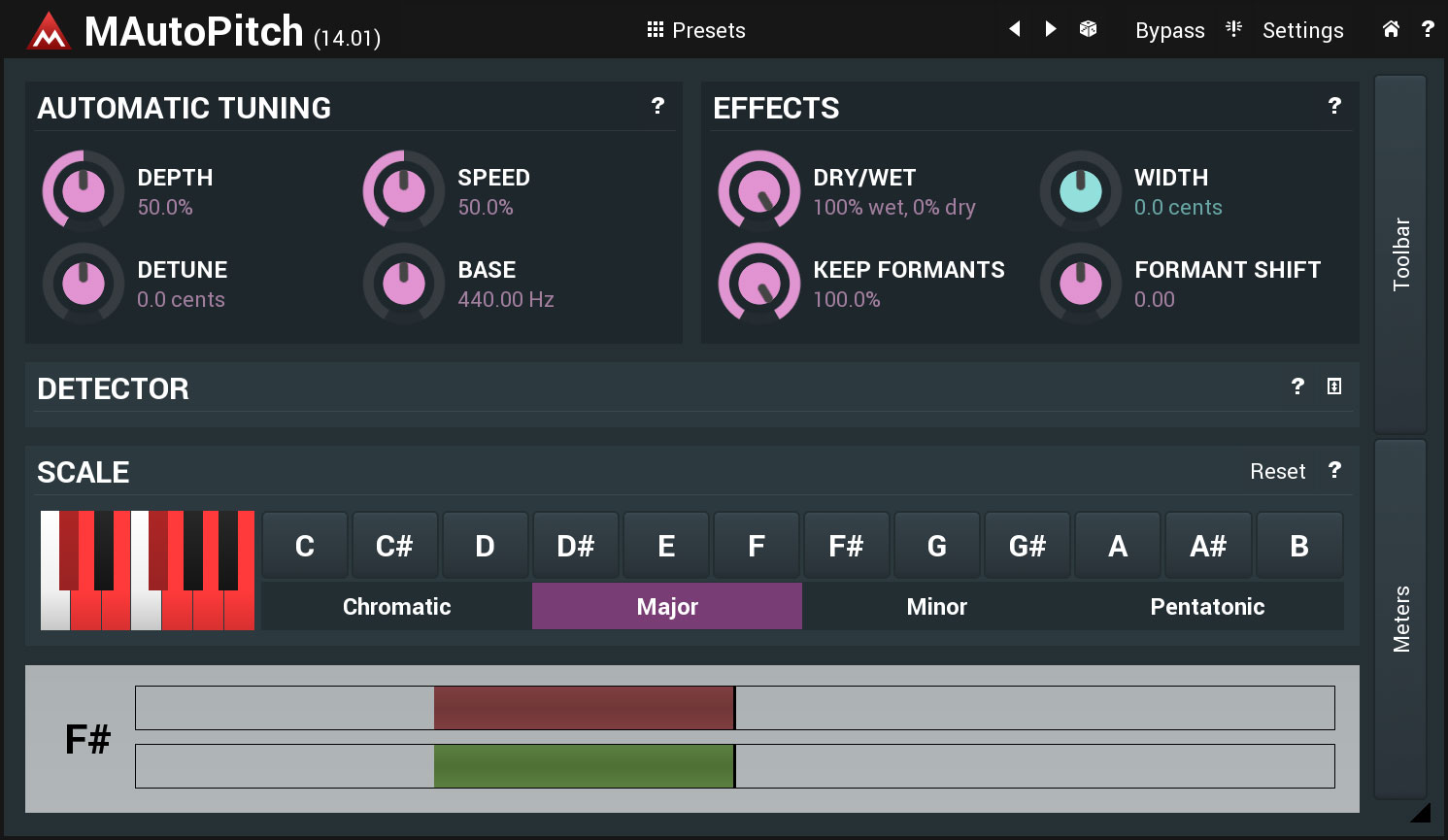

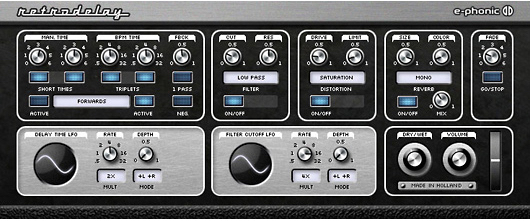
[…] You can now recreate the workflows of classic analog consoles, get the sound and color of priceless vintage Read more… […]